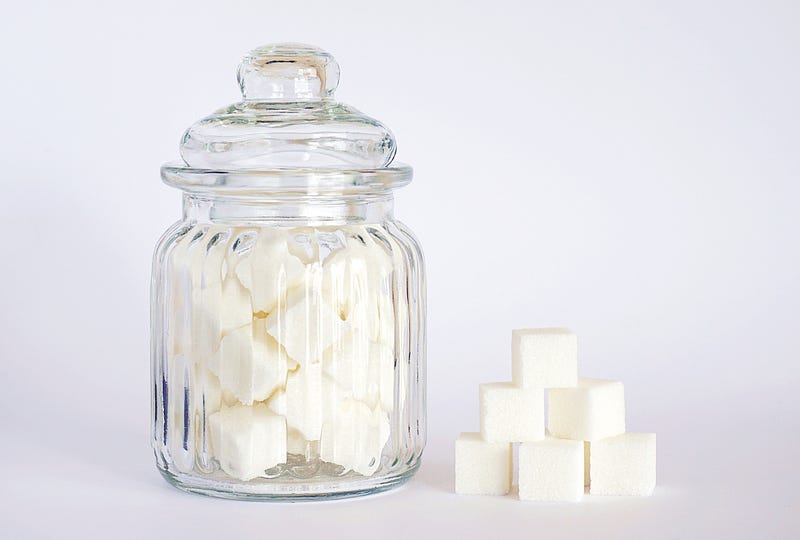Sugar and Cancer: Debunking the Myths Around Sweetness
Written on
Understanding Sugar's Reputation
It's widely accepted that sugar is detrimental to our health. For years, diet books have warned us that sugar might be the most harmful ingredient we can consume. Celebrity diets, despite their differences, consistently advocate for avoiding sugary substances.

The recent media frenzy surrounding sugar has only amplified these concerns, with headlines proclaiming that sugar consumption is leading us all to cancer. A seemingly innocuous glass of fruit juice could push you toward the terrifying prospect of cancer.
The good news? You likely don't need to panic about sugar's direct link to cancer. The not-so-great news? Excessive sugary drinks are still harmful to your overall health.
Scientific Insights
The source of these alarming claims stems from a comprehensive epidemiological study conducted in France. Researchers tracked over 100,000 participants for a decade, gathering extensive lifestyle data. They categorized individuals based on their sugar intake from sources like fruit juice and soft drinks, then monitored cancer incidences within each group.

After adjusting for various factors that might influence both sugar intake and cancer risk, the findings indicated that those consuming more sugary drinks had approximately a 20% higher risk of developing cancer. Even a daily intake of just 100ml — about one bottle of soda a week — was associated with increased cancer risk.
Moreover, the study revealed that this concern wasn't limited to traditional sugary drinks; even fruit juices were linked to heightened cancer risks. The only beverages deemed safe were those artificially sweetened, showing no adverse health effects.
A Nuanced Perspective
While the study raises important questions about sugar consumption, several caveats make its conclusions hard to generalize. First, cancer isn't a singular illness but a collection of diverse conditions.
In this study, various types of cancer were analyzed, including premenopausal breast, prostate, lung, and bowel cancers. The noted increased risk was primarily associated with premenopausal breast cancer, leaving other types unaffected by sugar intake.

Additionally, the study's absolute risk increase is less alarming than it may seem. The reported 20% rise translates to a mere 1% actual risk increase. For instance, in the lowest risk group, about 3 out of 100 individuals developed cancer, which could rise to only 4 out of 100 if sugar consumption quadrupled.
The observational nature of this study means that establishing direct causation is challenging. Other variables, such as socioeconomic status, could also play a significant role in both sugar intake and cancer risk.
Concluding Thoughts
Ultimately, the takeaway from this research isn't straightforward. While a correlation exists between sugar consumption and certain cancers, the implications are limited to specific cancer types, and the overall risk increase is minimal.
A more accurate headline might read: "Sugary beverages linked to certain cancers, but risk elevation is marginal." Unfortunately, such a title doesn't garner as much attention.
While it's prudent to moderate sugar intake for various health reasons, the fear of cancer shouldn't be the primary motivator. Sugary drinks are high in calories and low in nutrients, making moderation beneficial regardless of their cancer association.
Should you be concerned that your orange juice could lead to cancer? The evidence suggests that the connection isn't strong, and the complexities of health and diet warrant a more nuanced understanding.
If you enjoyed this analysis, consider following me on Medium, Twitter, or Facebook!
You can also tune in to the Sensationalist Science podcast for more insights into the world of science and media.
Chapter 1: The Sugar Debate
In this video titled "Does Sugar Feed Cancer Cells?", we explore the scientific community's views on sugar's role in cancer proliferation.
Chapter 2: Understanding the Research
"True or False: Does Sugar Feed Cancer?" | El Camino Health provides a detailed look at the facts and myths surrounding sugar and cancer risk.